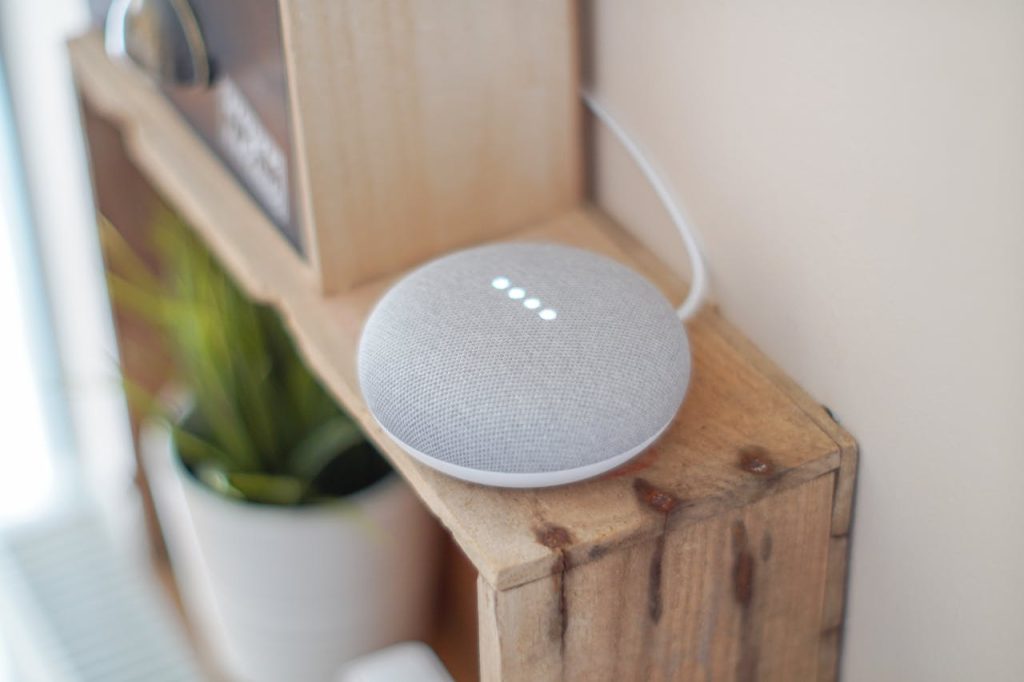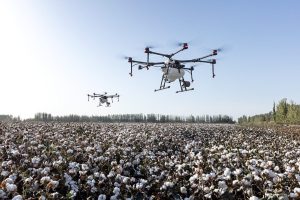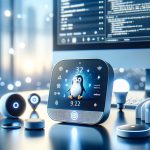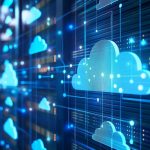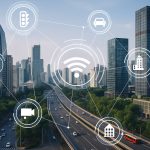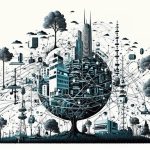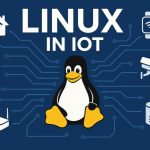IoT Trends 2025 – The Internet of Things (IoT) is no longer a future technology—it’s now at the center of business transformation across industries. From manufacturing to healthcare, retail to agriculture, IoT is reshaping operations, improving efficiency, and unlocking new streams of revenue. But in 2025, we’re seeing a new phase: smarter deployments, tighter integration with AI, and a stronger focus on security and ROI.
From Data Collection to Intelligent Decision Making
In the early days, businesses primarily used IoT to collect data. Sensors tracked movement, temperature, usage, and other metrics. But what’s changed in 2025 is how that data is being used. With advances in artificial intelligence and edge computing, IoT systems can now make real-time decisions.
Take logistics, for instance. A fleet management system equipped with IoT sensors and edge AI can reroute trucks automatically in response to weather or traffic, ensuring on-time delivery and fuel savings. It’s no longer about just gathering data—it’s about acting on it immediately.
Industrial IoT: Smarter, Safer, Leaner
Manufacturers have been quick to embrace Industrial IoT (IIoT), and for good reason. Connected machines now predict when a part will fail, schedule maintenance before downtime occurs, and even reorder supplies automatically. Predictive maintenance is becoming the norm.
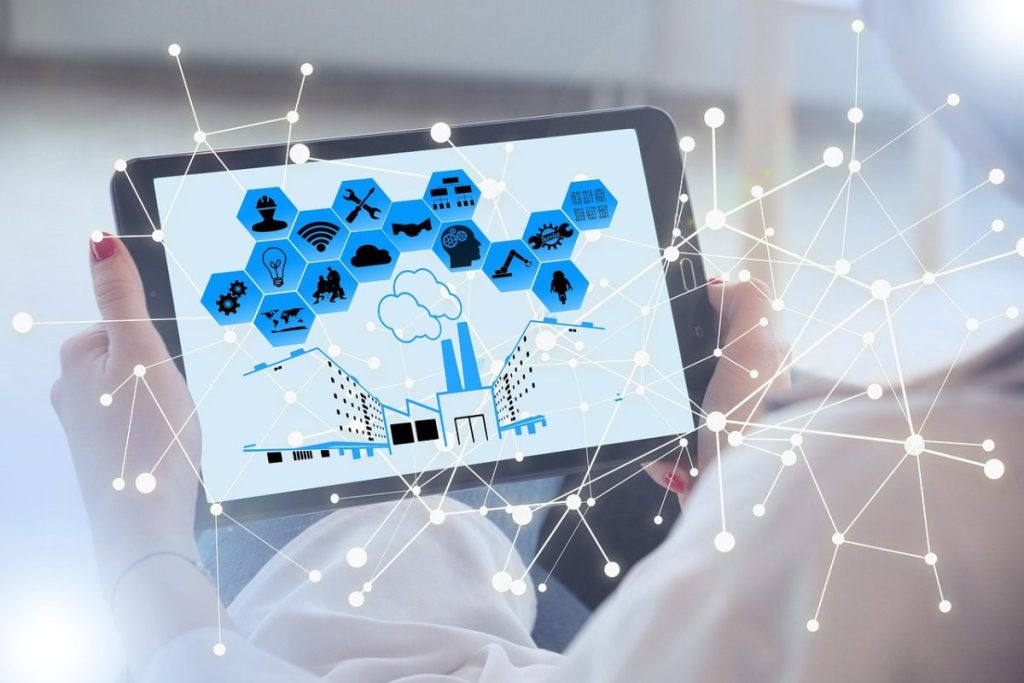
In addition to efficiency, safety has improved. Wearables on workers can detect fatigue or unsafe conditions, instantly alerting supervisors or triggering automatic shutdowns of equipment.
Retail Reimagined
Brick-and-mortar retail isn’t dead—it’s just getting smarter. In 2025, retailers use IoT to optimize inventory, personalize customer experiences, and improve checkout. RFID tags, smart shelves, and customer tracking systems create a seamless shopping journey.
Imagine walking into a store where your loyalty app triggers a digital assistant to suggest products based on your past purchases. Or a shelf that notifies the stockroom when an item is running low. That’s the new face of physical retail.
Agriculture Gets a Digital Upgrade
Farming has gone high-tech. IoT-enabled soil sensors, weather stations, and automated irrigation systems allow farmers to monitor and adjust growing conditions in real time. The result? Higher yields, less waste, and more sustainable practices.
What’s more, drones equipped with imaging sensors now scan fields for pests or disease, and autonomous tractors follow precise GPS coordinates to plant or harvest crops.
Enhanced Customer Insights
Businesses that use IoT not only optimize operations but also learn more about their customers. Connected devices—like smart appliances, vehicles, or fitness trackers—send data back to companies that use it to tailor marketing, product design, and support services.
This feedback loop allows for more personalized, responsive customer experiences. And in 2025, consumers increasingly expect that level of personalization.
Tackling Security and Data Privacy
With all this connectivity, security can’t be an afterthought. In 2025, businesses are investing heavily in IoT security frameworks, encrypted data pipelines, and device authentication. New regulations in many regions now require companies to demonstrate how they protect consumer data.
Fortunately, the rise of secure device identity management and network segmentation tools has made it easier to protect IoT ecosystems. And companies that do this well are building trust—and gaining a competitive edge.
Bottom Line Benefits
IoT isn’t just a tech upgrade—it’s a business strategy. In 2025, companies that embrace IoT see measurable improvements: reduced operational costs, faster decision-making, new revenue opportunities, and greater customer satisfaction.
And as IoT continues to evolve—especially in conjunction with AI, 5G, and blockchain—we’ll see even more advanced use cases. Businesses that get in now are positioning themselves for long-term success.
Final Thought
The Internet of Things is no longer about experimentation. It’s about execution. In 2025, the businesses thriving are the ones that have moved beyond pilots and prototypes to scalable, intelligent deployments. They’re not just connected—they’re transformed.
- The Role of Linux in IoT: Powering the Connected WorldThe Internet of Things (IoT) is everywhere—from smart homes and wearable devices to industrial automation and self-driving cars. Behind the scenes, one operating system plays a surprisingly dominant role: Linux. Known for its stability, flexibility, and open-source nature, Linux has become the backbone of countless IoT devices and platforms. But what makes Linux so well-suited…
- Edge AI vs Cloud AI in IoT: What’s the Difference and Why It MattersAs the Internet of Things (IoT) expands rapidly across industries, the amount of data generated by sensors, devices, and machines is skyrocketing. To make sense of this data, artificial intelligence (AI) is increasingly deployed in IoT environments. But not all AI is created equal. Two distinct approaches have emerged: Edge AI and Cloud AI. Each…
- Smart Cities and IoT: Building Intelligent Urban Futures in 2025As cities worldwide face growing populations, environmental challenges, and infrastructure demands, technology offers a path forward. At the heart of this transformation lies the Internet of Things (IoT). Through connected devices, sensors, and intelligent systems, cities are becoming “smart” — improving services, reducing waste, and enhancing citizens’ quality of life. In this article, we’ll explore…
- Meaning of Internet of Everything (IoE): Examples, and UsesThe Internet of Everything (IoE) is more than just a tech buzzword—it’s a sweeping transformation of how people, processes, data, and things connect to bring greater value to our lives and industries. While IoT (Internet of Things) refers specifically to interconnected devices, IoE expands this concept to include the human and business aspects that drive…
- IoT and Renewable Energy: Powering a Greener FutureAs the world transitions toward cleaner energy, the Internet of Things (IoT) is emerging as a powerful ally in building a more sustainable and efficient future. From smart grids to solar panel monitoring, IoT technology is playing a pivotal role in transforming how we generate, store, and consume renewable energy. The Role of IoT in…
